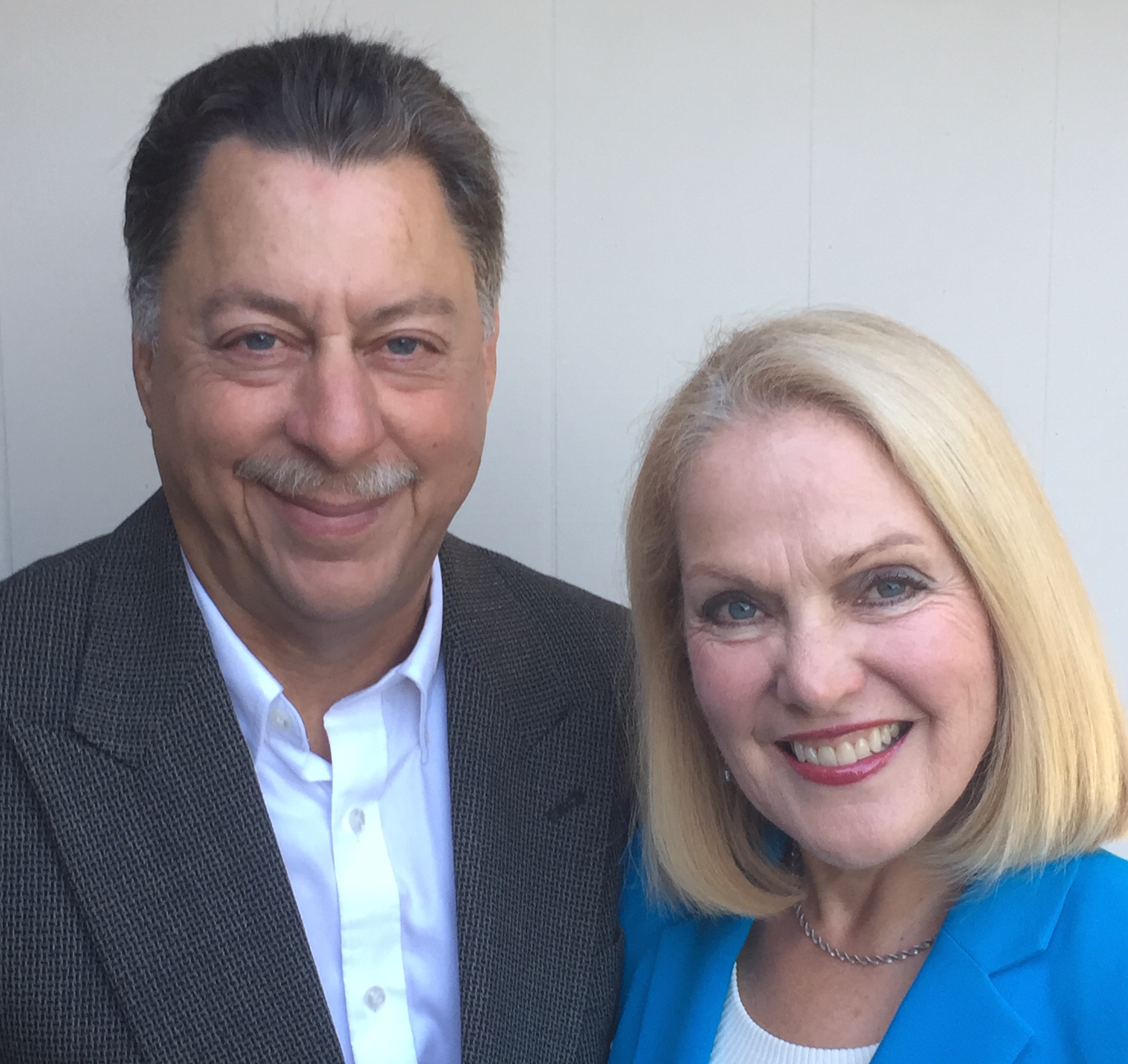
Feb 13, 2018 | aging, aging investor, cost of aging, elder investor, finances for elders, financial advisors, financial capacity, financial elder abuse, financial judgement, finra, handling money for aging parents, handling money for seniors, investor, power of attorney, senior investor, seniors finances
The regulators are trying. They want to help advisors protect aging clients from financial abuse. They don’t want you to fear doing something wrong if you refrain from handing over assets to what looks like an abuser. But not living in the real world of how to stop abuse by determined abusers has its disadvantages. The new rule tells you who is at risk (elders and other impaired adults). It tells you that you just need a reasonable suspicion of abuse, not unquestioned evidence. It tells you what a temporary hold is and how long it can be: 15 days, 25 at max. Sounds ok. Until you actually know how long it takes for the legal steps to halt abuse.
Here at AgingInvestor.com we see this problem in the world of families and those who want to rip them off, not from inside an institutional setting or financial services firm. The world from here looks different from what FINRA imagines. There is usually no way anyone can stop abuse in 15 days or even in 25. We explain. In a real case, the kind this rule is designed to affect, we worked with family in an unfortunately typical situation of an unscrupulous son trying to squeeze money out of his 90 year old father who had dementia. The advisor had seen the pattern. He knew the son never did well on his own and he had been given handouts from dad for years. Dad, whom we’ll call Joe, lived in a nursing home. He needed help with everything and his memory was shot. He was easily confused. Yet his advisor never questioned his ability to effect financial transactions. But when the son, we’ll call Jake, brought his frail father into the advisor’s office demanding $50,000 plus access to the cash management account, the advisor was sure it was abuse. He knew his client was too confused to disagree with Jake. The advisor dragged his feet and didn’t provide the check his client had asked for, pushed by Jake, Over a month later, he felt obligated to give his client the $50K, which of course Jake got right away from Joe. The advisor didn’t have Rule 2165 but he knew that Joe’s daughter Rhoda was the appointed person as power of attorney and successor trustee. He didn’t have permission to contact her, so he did it, as he said “on the QT”. Rhoda was upset. She called us for advice. She found us through her own advisor who had the sense to send her to a resource who could answer her questions and guide her.
First we looked at the trust and what it said about Joe being removed as trustee or resigning as such. Two doctor’s letters were needed, verifying that he was no longer competent to manage finances if he was to be removed as trustee. We advised her to get those letters asap. Rhoda lived out of state from Joe. She found the doctors and flew into town to take him to the appointments. Fortunately the doctors were able to say that Joe had indeed lost his capacity for handling his money. A couple of weeks after the appointments, Rhoda got the letters she needed. She then had to take them to Joe’s estate planning attorney, who met with her and eventually gave her a Certificate of Trust, showing that she was now the successor to Joe and was in charge of his money. She then had to get the Certificate to his advisor’s firm, which had to review it and after two weeks, they accepted it. Only then was Rhoda able to stop any further disbursements from Joe’s account without her permission. Her brother was furious. His gravy train had stopped. The advisor had sent a debit card for the cash management account Joe requested under pressure to Rhoda, not to Joe. Rhoda destroyed it. Abuse stopped in its tracks.
Reality check: this scenario of stopping abuse involved a lawyer, an elder willing to go to two doctors, the cooperation of two doctors, travel between states, the approval of the Certificate of Trust with Rhoda’s name on it through a process by the advisor’s firm and a lot of time spent by Rhoda. The entire matter of protecting Joe from abuse took three months. Rule 2165 supposedly authorizes advisors to “take immediate action” when abuse is reasonably suspected. What is myth rather than reality is how long it takes to actually protect the elder and stop a predator. This was a case of undue influence by Jake who had a history of manipulating his father. And the new rule would not have helped at all. Jake would have happily waited for a mere 15 days to get his hands on the cash. Rhoda couldn’t possibly get Joe removed as his own trustee without the doctors’ letters. This sort of prerequisite of needing doctors to verify incapacity is commonly required in typical trusts. Perhaps the drafters of Rule 2165 never had to go through the process described here in their own lives. If they had, the new rule would provide for a 90 day authorization to hold transactions, rather than a maximum of 25 days. Maybe going forward when the myth gives way to reality, the rule will be revised. For now it is inadequate.
|
|
Dr. Mikol Davis and Carolyn Rosenblatt, co-founders of AgingInvestor.com
Carolyn Rosenblatt, RN, Elder Law Attorney offers a wealth of experience with aging to help you create tools so you can skillfully manage your aging clients. You will understand your rights and theirs so you can stay safe and keep them safe too.
Dr. Mikol Davis, Psychologist, Gerontologist offers in depth of knowledge about diminished financial capacity in older adults to help you strategize best practices so you can protect your vulnerable aging clients.
They are the authors of "Succeed With Senior Clients: A Financial Advisors Guide To Best Practice," and "Hidden Truths About Retirement And Long Term Care," available at AgingInvestor.com offers accredited cutting edge on-line continuing education courses for financial professionals wanting to expand their expertise in best practices for their aging clients. To learn more about our courses click HERE
|

Feb 13, 2017 | diminished cognition, elderly, financial capacity, financial elder abuse, finra, scammers, SEC
In all the proposed rules by FINRA and the SEC to address financial exploitation of seniors, advisors are urged to report suspected abuse to the local Adult Protective Services or to call the police. Unfortunately that is not always a solution. There seems to be a lack of clarity about how things work. Here’s a typical scenario that illustrates an issue.
Myra is 87 and her daughter, Lexie has been taking advantage of her for years. Myra feels sorry for her daughter because she can’t seem to hold a job. Never mind she has a drug habit. Myra has means and she often gives Lexie “loans” that are never repaid.
Lexie gets a power of attorney from Myra, goes with Myra to her financial advisor and tells the advisor that Myra needs $80,000 for a trip they are going to take. Myra is disabled and never travels. The advisor knows this. Advisor decides after seeing several of these demands for withdrawing Myra’s funds under suspicious circumstances that Lexie is abusing Myra. The total amount withdrawn at Myra’s request is over $150,000 in six months, which is highly unusual.
Advisor calls the police. They refer her to Adult Protective Services. APS takes a report over the phone, asks questions and then asks Advisor to fill out a report form. She fills it out and reports the recent questionable $80K demand and withdrawal and she lists the total taken of $150K. She puts Lexie’s name on it as the person suspected of financially abusing Myra.
APS sends a social worker out to investigate the complaint and to visit Myra at home. Myra finds the worker to be very nice and they chat. “Has your daughter ever pressured you to give her money?” the worker asks. “No”, says Myra. “Do you remember giving her gifts or loans totaling $150K this year?” the worker asks. “I don’t think I did that”Myra says. The worker asks if she is in the habit of giving money gifts to Lexie and Myra says yes, that Lexie is her daughter and she needs some help sometimes. The worker concludes that giving money to Lexie is what Myra wants and the case does not go any further. No one has tested Myra to see if she is competent to understand the consequences of giving her assets to Lexie, particularly since she has two other adult children.
In this case the facts are not clear enough to prove that a crime was committed. APS will not recommend that Lexie be prosecuted because even though giving away money is not in Myra’s best interests, she is assumed to be competent to do so. In this case APS is not solving any problem and takes no further action. If Myra did not want the funds to be given to Lexie it would be different and elder abuse could be proven perhaps. As is there is too much doubt about Myra agreeing to be taken advantage of by Lexie, no prosecutor could meet its burden of proof.
The Other Option
Lexie’s other two siblings were not initially aware of the abuse by Lexie. Their potential inheritance is directly affected by their sister’s actions and when they find out they call APS also. The case is closed and they get nowhere. They are furious.
They consider another option. If there is no crime here that can be proven, there may be a civil case. They contact an attorney who handles civil cases of elder financial abuse. The attorney does an investigation and finds out that Lexie has bought a condo with the money taken from Myra. The attorney successfully proves that Myra was duped by Lexie and the matter is settled by Lexie’s attorney agreeing to sell the condo and give the proceeds back to a fund set up for Myra in case she needs more cash as she ages. And the settlement agreement says that Lexie will inherit no part of the fund. Further, the power of attorney Lexie got is torn up and Myra appoints a more responsible agent, another daughter who now oversees all of Myra’s finances.
With a misunderstanding of how law enforcement works, there is a belief that all one must do is report to APS and somehow, financial abuse will be stopped. But when APS finds insufficient proof, or a wiling victim like Myra, they do not intervene. They are essentially reporters to law enforcement but APS does not prosecute anything. A civil case is outside their sphere and a civil attorney must be consulted to explore whether one can pursue that possible way of recovering an elder’s assets that have been wrongfully taken.
The Takeaway
The important thing to know here is that APS is limited in what it can do. A criminal case of any kind has to be proven “beyond a reasonable doubt.” Any advisor who wants to keep senior clients safer needs to understand that a willing victim will pretty well destroy a criminal case of abuse. A civil case is a possibility as long as there is an asset (in Lexie’s case, a condo) to get and someone who is not a willing victim (in Lexie’s case, her siblings). One should know a competent elder abuse attorney to consult and find out if your client has that choice in taking legal action or if her heirs do. Making a few calls is the least you can do to protect your client.
By Carolyn Rosenblatt, RN, Elder law attorney, AgingInvestor.com

Oct 21, 2016 | aging, aging investor, diminished cognition, elder investor, finances for elders, financial advisors, financial capacity, financial elder abuse, finra, handling money for aging parents, handling money for seniors, NASAA, nasdaq, SEC, senior citizen investor, senior investor, seniors finances

Jun 15, 2016 | aging investor, elder investor, financial capacity, finra, FINRA Rule 3110(a), investor, NASAA, SEC, senior investor, seniors finances
Do you supervise anyone in your office or firm? Beware of supervision over improper mutual fund switching, especially with older clients.
FINRA Rule 3110(a) requires each member to “establish and maintain a system to supervise the activities of each associated person that is reasonably designed to achieve compliance with applicable securities laws and regulations, and with applicable FINRA rules.”
An individual supervisor may be held liable under Rule 3110(a) for failure to provide reasonable supervision. When a supervisor is charged with a failure to supervise, it’s because of not acting on the red flags the examiners felt were evidence of wrongdoing. Those red flags could include switching to up-front sales loads with a number of elder investors and unusually high commissions that result. When this happens with a number of older clients, it will alert them to scrutinize you more closely.
If older clients have shown signs of diminished capacity and this sort of switching is going on, it is asking for trouble from FINRA. This agency is focused on a lot of compliance issues but they are particularly interested in anything that appears to be taking unfair advantage of seniors. They want you to understand diminished capacity and to be able to identify the warning signs. Every supervisor should know this information well.
One of FINRA’s persistent recommendations matches the stated goals of both the SEC and NASAA as well: it is that you keep your aging clients safer. Given that shared regulatory mission, it is understandable that they are looking for places to hold you accountable in your transactions with seniors.
To learn more about diminished capacity, the red flags and what you can do when you spot them, take advantage of an opportunity to get a quick online primer at your convenience. AgingInvestor.com offers Best Practices for Managing Clients With Diminished Capacity.
Click here to learn more: https://www.aginginvestor.com/courses/

Jun 15, 2016 | aging, aging investor, diminished cognition, elder investor, finances for elders, financial capacity, financial elder abuse, finra, handling money for aging parents, handling money for seniors, scammers, senior citizen investor, senior investor, seniors finances
Is financial abuse happening to YOUR clients right now? Of course it is. There is no escaping it. A recent study puts the amount stolen from elders every year in our country at over $36B. With a problem as big as this, no group of elders is immune.. If you took a survey of your existing clients all age 65 or older, and asked them how many have ever been taken advantage of financially, you would be sure to get some clients who would admit to this. If you look at your own experience and count up any instance you know of, whether it is in your family, your neighborhood or your book of business, you will likely find some financial abuse as well.
Why Is This Important for You?
The amounts stolen, fraudulently taken or just snatched from the unwary, are shocking. Remember that when your client loses assets, you lose fees. That is the most basic reason this should be important to you as a financial professional. Doing the right thing to keep your clients safe is certainly a motivator as well. It shows that you do care about them. And beyond that, the regulators are increasingly aware that financial professionals are in a position to take action and, sometimes, to stop and prevent financial abuse. They will soon get past merely urging you to take action and to report abuse. They will ultimately make it mandatory.
And we think you can do more proactively than merely to understand how to report abuse after the fact. It would be great to catch more criminals but that is extremely difficult in many cases because they are very clever at evading law enforcement. And since family members are the most frequent abusers, we have an added problem in that many elders are reluctant to report abuse by their own to law enforcement. Mom just won’t call Adult Protective Services on her son, even when she knows he has stolen from her. We have seen this with our own eyes There are many instances of scammers getting into relationships with aging folks by phone or on the internet. The “friendly” relationships become addictive. These thieves persuade the victim to withdraw funds from their accounts. This is where the advisor comes in. Unusual withdrawals are an important warning sign of elder abuse. And when the advisor notices this in a client’s account there are choices available about stopping abuse. They include contacting a trusted other the elder has identified and warning them of what is happening. There should be more than one trusted person identified for every client. And by all means, contact Adult Protective Services and report it if you suspect fraud.
If you are worried about privacy rules, don’t be. The regulators of your industry want you to report abuse. They want you to make every effort to keep aging clients financially safer. If you are not sure about privacy, we can help you create a special privacy document here at AgingInvestor.com that gives you permission to call that third party. Every advisor with any client over age 65 should have this and understand how to approach a client about signing it. With permission like this, you should never hesitate to tell APS and the trusted other that you are concerned about your client being financially manipulated.
You can get more details about this elder abuse issue and what you can do as an advisor in Succeed With Senior Clients: A Financial Advisor’s Guide to Best Practices. See particularly the chapter “Financial Elder Abuse: How You Can Fight the Crime of the Century“. It’s available right now so click HERE to get your copy today.
by Carolyn Rosenblatt, RN, Elder law attorney, AgingInvestor.com

Mar 25, 2016 | aging, aging investor, diminished cognition, elder investor, elderly, finances for elders, financial capacity, finra, handling money for seniors, investor, senior citizen investor, senior investor, seniors finances
Have you ever felt frustrated when you thought your client was showing signs of declining mental status? Did you ever want to get someone else involved in financial decisions but thought you couldn’t because of privacy rules?
The average advisor has seven clients with some form of diminished capacity. Perhaps you are one of them, not comfortable with the privacy laws that restrict you from calling in someone to help when your client doesn’t seem all there anymore.
If you are worried that you must just stand by and watch a vulnerable client make bad decisions, or worse, get ripped off by someone who is manipulating him and taking advantage of his cognitive impairment, there’s good news. There is a way around the confidentiality conundrum. You need your client’s permission in advance to call that third party.
How do you plan for the possibility of needing a third party? Take your cue from lawyers. When we have a conflict that would be there unless we get an ok from our clients, we design a document that allows the client to give up the right she would otherwise have. We get the client’s signed approval do to what we need to do whenever feasible. You can do the same thing with privacy restrictions.
Imagine that you have some clients over the age of 65. Imagine that you are a proactive thinker. You want to keep all of them safe and keep those clients, even if they decline cognitively in the future. Imagine that you have been really smart and have gotten a special permission document done. Every client over age 65 signs it. You are ready!
What Should A Privacy Permission Contain?
We recommend three essential elements for your document.
First, you need to identify the circumstances under which your client wants to give you the ok to call in that third party they identify.
Second, the document needs to be legally sufficient; i.e., it should have language like an advance healthcare directive or a standard durable power of attorney.
Third, it needs to be signed and notarized by your client.
How Do You Get It Done?
Your legal department should be able to help you. If not, a model document was created by lawyers at AgingInvestor.com, in the context of a senior-specific program to protect your aging investors. You can’t just throw one together. As you have to know, recognize and document the signs of diminished capacity that would lead to use of this kind of document, those are prerequisites. Then the matter escalates according to a standard procedure. Get a clear path. Find out more about it HERE.

Mar 25, 2016 | aging, aging investor, diminished cognition, elder investor, elderly, finances for elders, financial capacity, finra, senior citizen investor, senior investor, seniors finances
U.S. Senator Patty Murray, U.S. Secretary of Labor Thomas Perez, and WHCOA Executive Director Nora Super discuss aging issues at WHCOA Seattle Regional Forum – Credit: white houseconferenceonaging. gov
What Is This Conference and Why Is It Important?
Every ten years the Federal government sponsors a Conference on Aging.
The relevance of this conference to financial professionals is that it identifies the most common problems aging Americans face and it provides direction for planning for seniors’ needs. It is worth reading the final report. You likely have some boomer age clients and perhaps some aging clients as well. Be aware of what is important to them and you’re likely to keep them as clients.
Who Attended the Conference?
Beginning in February 2015, WHCOA held a series
of regional forums for its Conference on Aging to engage with older Americans, their families, caregivers, leaders in the aging field, and others on the key
issues affecting older Americans.
The concept was to hear about seniors’ issues and plan accordingly. The series of discussions was co-sponsored by AARP and planned
in coordination with the Leadership Council of Aging Organizations, a coalition of more than 70 groups,
Each forum included 200 invited guests — older Americans, family and professional caregivers, aging experts and others. These discussions took place across the country.
Reading about the subjects they discussed and the conclusions reached in the conference Final Report was not a surprise to us at AgingInvestor.com, as we are in the field. But one thing did surprise me completely: no one gave much mention to the need for thorough financial education and planning
with professional help.
There was mention of the Department of Labor’s initiative to facilitate State creation of retirement savings programs. There was also discussion of the U.S. Department of the Treasury’s recently issued guidance clarifying that employers sponsoring defined benefit pension plans generally may not offer lump
sum payments to retirees to replace their regular monthly pensions. As noted in a recent Government Accountability Office report, such lump sum payments transfer longevity risk and investment risk from employers to individual retirees, putting retirees at risk of being unable to maintain their standard
of living or outliving their assets in retirement. Wouldn’t financial advice help? No mention was made of the value of at least seeking advice from financial professionals to maintain income while investing responsibly for those who did get a lump sum payment.
The report emphasizes the need for providing lifetime income and seems to favor employers offering annuities as part of retirement planning. The Treasury and Labor Departments previously have issued
a series of guidance documents encouraging plan sponsors to offer responsible annuity options to help protect retirees from outliving their savings.
The Gap
That may work for some, but I found myself at a loss as to why mention was not made of the importance of professional guidance in financial planning, which may be the best way to ensure that an individual
does not, in fact outlive his savings. That’s your job.
Opportunity for Financial Advisors
An obvious opportunity for financial advisors is to offer financial education to members of the public. Some attendees will not have enough to make new investments, but others will. With 10,000 people turning 65 every day and the oldest boomers turning 70 now, financial advisors can play a key role in helping aging members of society do better with managing their money as they age. Advisors can improve the sometimes negative public perception of the industry by stepping up, putting on few seminars with the basics of saving and investing and capturing some new clients in the process.
Need to update your information about long term care? Get a short book that tells you how to best work with your aging clients, including planning for the costs they may worry about the most. Working With Aging Clients is a sure bet, available at AgingInvestor.com.

Jan 16, 2016 | aging, aging investor, elder investor, elderly, finra, investor, NASAA, SEC, senior investor
“Regulatory Changes Advisors Must Face With Your Aging Clients”
Summary of course:
Update on what the SEC, FINRA an NASAA have in mind for financial professionals across the country in how they do business with clients over age 65. Review of the research these agencies have done, Model Rules regulators have created and what exemplary things they found firms and organizations doing for aging clients. They all want financial professionals to be more protective of aging investors. They envision mandates for reporting financial abuse of elders will and expand mandates into other areas. This course highlights areas regulators expect advisors to address, such as training in senior issues and increased communication with aging clients. It provides specifics on how to get ready for what the regulators want so that you will not have to scramble to comply with mandates.
Learning Objectives:
- Understand the regulators’ concept of a “senior program” and how you can create one.
- Know the Model Rules about financial abuse the regulators have already publicly posted.
- Know what other firms across the US are doing about aging investors that you should be doing too.
- Know what action steps you can and should take now to be ready for mandates.


Nov 24, 2015 | finances for elders, financial capacity, finra, NASAA, SEC, senior citizen investor, senior investor, seniors finances
FINRA, together with the SEC and NASAA are on a joint mission to keep seniors and impaired adults from being financially abused. FINRA has proposed new rules that will allow a firm to put a temporary hold on financial transactions when abuse is suspected, and will allow the firm to contact a trusted other during this hold period.
Where’s the flaw? No rule yet mandates that every financial firm and every individual advisor obtain information for a trusted contact person for every client. Not only should this be required for all new accounts, it should be mandated that such trusted others be identified for every client over age 65. As the risk of dementia doubles approximately every five years after age 65, the reasons for the advisor to have someone to call when concerns arise is obvious.
As to the subject of the trusted other, the elder usually names an adult son or daughter as the trusted one. Sometimes that is all the information the advisor has. At the same time, the studies on elder financial abuse show us that family members are the most frequent abusers. Do you see the contradiction here? Every advisor should be required to obtain not only one “trusted person” but two or three so that if abuse is going on or seems to be a threat, the advisor can involve more than one person in the effort to stop it.
Another flaw in the proposed rule is that is it assumed that something helpful will occur during the hold period when the institution is excused from liability for not acting. But there is no clear evidence that either advisors or institutions are being trained to spot financial abuse warning signs before the money is all drained from the account. As we see it, the proposed rule focuses on doing something after abuse is clear and the institution has “a reasonable belief” that financial abuse is occurring. We think the industry can do much better than reacting by being required to call someone after the client has been taken advantage of or had the portfolio plundered.
Here’s the truth: getting an unwilling aging person to step down from financial authority over his portfolio takes more than a few days or a couple of weeks. If there is a trust in place and the elder is the trustee, the terms often state that at least one doctor, or two must say that the client is no longer capable of handling financial matters. Getting a doctor or two to see the client, do an assessment and produce something in writing with the needed findings can take months. And we’ve witnessed this exact scenario when it did take three months to oust the impaired, demented senior who wanted to give his predatory adult child a debit card for his cash management account.
At AgingInvestor.com, where we educate both financial institutions and independent advisors about stopping financial abuse, we think the effort to keep elders financially safer needs to go to the front end of abuse, not the back end after it has happened. Proactive steps can be taken. We urge every financial professional to know the warning signs of diminished capacity so you can engage the trusted third party when the signs emerge, rather than waiting until someone, whether family or outside predator seizes the opportunity to exploit diminished capacity.
To learn more about what you or your institution can do that we think is much better than simply being allowed to hold transactions for a bit when you believe abuse is going on, contact us at AgingInvestor.com. We have an entire program outline ready for you with focus on prevention.
If your client is being manipulated, holding transactions when you’re pretty sure it’s gone on can do little to protect your client. The predators and thieves can empty an account faster than it would take you to fill out the forms FINRA will inevitably give you. Think the way you are trained to think about finances generally: plan ahead, anticipate problems before they get here, and take protective action.
Carolyn Rosenblatt, RN, Elder Law Attorney, Founder AgingInvestor.com

Jun 13, 2015 | aging, aging investor, diminished cognition, elder investor, elderly, finances for elders, financial capacity, financial elder abuse, finra, handling money for aging parents, handling money for seniors, investor, senior citizen investor, senior investor, seniors finances

Why Delay Is Not A Solution
The securities industry is pushing to impose temporary holds on certain transactions that may be precipitated by a clients’ declining mental capacity, or purported loved ones who may be trying to swindle them. Sounds good in theory. Too bad it won’t solve the problem of financial abuse. Does the industry think that waiting is going to make the problem of predators go away?
Here is an example of a real case in which this exact method of the broker waiting and hoping didn’t do a thing for the elder who was being abused. READ what happened:
(more…)

May 29, 2015 | aging, aging investor, diminished cognition, elder investor, elderly, financial elder abuse, finra, investor, medicare, scammers, senior citizen investor, senior investor
Most of us hear about unscrupulous family members taking advantage of their aging parents or grandparents. And everyone knows that internet scams abound. The one in which the scammer calls an elder and pretends to be a grandchild in trouble is notorious. And unfortunately, successful as it still goes on. Funds from grandma’s account get wired to Western Union and the thief disappears.
Financial elder abuse is rampant. The National Center On Elder Abuse puts the amount stolen from elders each year at $2.9B. But a privately run recent study calculated the amount at a shocking $36B+ per year. Who is doing this to our seniors?
Family members are the most frequent abusers of elders, because of access, exploiting the relationship of trust, and knowing just how easily manipulated a parent or other loved one can become with aging and dementia. Family members usually know how much money their parents have and how to get the parent to either give it to them or give them control over it so they can take it without the parent’s knowledge. Sadly, we see this often in our consulting work at AgingParents.com.
Caregivers, who also develop a relationship of trust with their care recipients, have the advantage of being with the elder in unsupervised situations. Ruthless caregivers get the elder to sign a power of attorney and being dependent on the caregiver, the elder may be fearful and intimidated if she does not acquiesce to the demands of the caregiver. In one case, a caregiver managed to steal $4M from a 74 year old client with multiple sclerosis who became physically unable to manage for herself. The caregiver got a power of attorney and opened 67 accounts in eleven banks. One bank finally caught on and reported their suspicions, but it was too late. The caregiver went to jail but the elder died before the criminal’s sentencing.
In spite of the easy access family and caregivers have to seniors, the most dollars are actually stolen from elders every year by professionals. That includes broker-dealers, insurance sales persons, lawyers and others in a position of both trust and authority to manipulate or outright steal elders’ funds. About a third of FINRA prosecutions involve elders. There are ripoff artists among us.
One thing that doesn’t seem to change over time is the reality that most cases of elder abuse go unreported to authorities and are therefore never prosecuted. The thieves get away with it. In one case we saw in our office, a 92 year old whose son had power of attorney for her took thousands of dollars from her bank account and refused to account for it. We were involved in helping her change the authority he had over her finances. I spoke with her and described that what her son had done was wrong and was a crime. She knew it was wrong and did not want to take action. Her response: “I don’t want my son prosecuted”.
Many elders are more frail and less willing to pursue legal remedies than a younger person may be. They suffer from shame, depression and embarrassment that they have been so taken in by anyone. Some just don’t have the energy to fight back and the thieves know this. They count on it.
What can the concerned financial professional do about financial abuse? There are ways you can be more vigilant and protective of clients than ever. Here are five things to keep in mind for any aging client.
- Know that even at the very earliest stages of dementia, a client is likely to be moderately impaired for making safe financial decisions. Pay attention to their ability or lack of it to understand complex or risky products such as non-traded REITS, which regulators disapprove of selling to seniors. Avoid suggesting or offering any products which require significant analysis by the client if you have even a hint of cognitive decline in that client.
- Know that age alone is a risk factor for developing dementia and its accompanying diminished capacity. By the time your clients reach age 85, at least a third of them will have Alzheimer’s Disease or other dementia. Two out of three persons affected by Alzheimer’s are women. Be especially vigilant with your aging female clients.
- Know your client. If he or she departs from a long standing spending pattern and you suddenly see unexplained large cash withdrawals, be suspicious, ask questions and probe. Someone could have gotten control over your client’s account. Don’t stand idly by. Get involved and find out. Report abuse if you suspect it. Take action to stop the abuse. Protect your client.
- If you work in an organization where professional colleagues have aging clients and there is opportunity to either sell them unsuitable investment products or otherwise manipulate these elders, lobby your organization for enhanced and more frequent scrutiny of all client accounts for people age 65 and up. The Federal Government and state laws define an “elder” as someone 65 and above. Watch those accounts more often and in more detail.
- Develop your own best practices, senior-specific policy, in writing. Training in best practices and commitment to your clients’ safety will enable you to get it right. Once you have a clear policy in place for yourself independently or for your organization, everyone can respond to red flags of diminished capacity and warning signs of elder abuse in a uniform way. That will enhance your ability to honor your clients so you can protect him from predators.
By Carolyn Rosenblatt, RN, Elder Law Attorney
AgingInvestor.com

Apr 18, 2015 | aging, aging investor, elder investor, elderly, financial elder abuse, finra, investor, scammers, senior citizen investor, senior investor
 Imagine this scenario. The person making all financial decisions was the man of the house. His somewhat timid wife, married to him for many years, never wanted the responsibility to decide how to invest. They had a multimillion dollar estate. Then Harry, her husband died and she was totally unprepared.
Imagine this scenario. The person making all financial decisions was the man of the house. His somewhat timid wife, married to him for many years, never wanted the responsibility to decide how to invest. They had a multimillion dollar estate. Then Harry, her husband died and she was totally unprepared.That’s “Rosanna’s” story. Rosanna was married for decades to Harry who passed away at age 85. She was 82 at the time. They had three adult daughters and one son, Jackson. Their son was never a steady job holder and had fantasies of how he was going to be a business owner. After his father died, he saw an opportunity. He could easily manipulate his mother, who looked to him to essentially take Harry’s place with decisions about investments. Rosanna had begun to suffer serious memory problems and couldn’t remember a conversation from morning to evening. She was clearly a person with diminished capacity.
Jackson was a co-trustee on the parents’ trust with his mother and sisters, but had sole power to make investment decisions. He conspired with the long time broker-dealer who used to work with his father. The broker also saw an opportunity. The broker told Jackson that he could help him out but Jackson needed to put a lot more of Rosanna’s money into variable annuities. What this meant was that her money would be tied up for years, unless she paid a stiff surrender charge to get to it. A full 87% of Rosanna’s money was then shifted into variable annuities. When Harry died, the amount invested in annuities was about 40%, which was plenty. This shift of most assets into annuities of course generated a huge commission for the broker. About the same time, Jackson took a six-figure loan from Rosanna’s trust without consulting his sisters and without informing them.
They were angry and upset with Jackson for manipulating their mother, for taking out a “loan” from their mother’s trust, which he didn’t pay back and for sneaking around behind their backs putting so much into variable annuities. That was going to affect their inheritance. When the sisters called me, we discussed the issue of manipulation of their mother. No one had ever checked her out for her capacity for financial decisions. When her daughters wanted her to see a doctor to find out more about her memory troubles, Jackson vetoed it. Rosanna consulted Jackson on everything. This meant that legal action was necessary. I referred them to an elder abuse attorney to take up the cause. They were very distressed and not speaking to Jackson. Meanwhile, Jackson again manipulated his mother to get money from her, with which he hired an attorney to harass and threaten the sisters. It was ugly.
No one can be sure how this nasty tale will play out, but the regulators will probably not like the fact that the broker put so much of an 85 year old’s assets into variable annuities. They will probably not like that he had to override his firm’s internal controls set up to prevent that. They will probably not like the fact that the net result is that the estate lost a significant sum compared with what it would have done in conventional investments suitable for an 85 year old. I sent the sisters the forms to file complaints with both FINRA and the SEC. They will also have an attorney to represent them in that matter.
And as for Jackson, I hope that the courts will deal with him justly. He is looking out for himself, that is clear. As a trustee, he had a legal duty to the trust, not to his own self interest in grabbing a six figure “loan” from the trust that he had no means to repay.
The takeaway here is that your aging clients, particularly the very unsophisticated ones like Rosanna are sitting ducks for abuse by unscrupulous brokers. And it is up the the advisors who are ethical to blow the whistle. It is up to everyone to seek justice for the unwary who become victims of manipulation because of greed, the ease of taking advantage of an elder, and the attitude that “it’s not my problem, she’s not my client”. Please make it your business. At AgingInvestor.com, we want to put a stop to this kind of abuse. We urge you to join us!
Click HERE if you want to help us make a difference.
Until next time,

Apr 13, 2015 | aging, Alzheimer's disease, diminished cognition, elderly, finra
Thwarting Elder Abuse: Who Should You Call When You Suspect It?
Imagine this: it happens. Abuse seems to be going on right in front of you with an aging client. A family friend is manipulating her, and you’re pretty sure about that. What would be the first thing you could do?
Perhaps you’ve taken a class or training in senior specific issues like dementia. (You’ll be especially knowledgeable if you’ve gotten training with our Aging Investor.com webinars!) You’re determined to stop it if you can.
You may think of calling Adult Protective Services, but you also know that APS is limited, and addresses situations that are criminal in nature. Sometimes when an elder seems to be going along with the abuse, APS may have its hands tied. For example when a friend close to the elder is pressuring an elder into giving him large amounts of cash and draining the elder’s bank account, the elder may not show concern. The aging person could be subject to undue influence or perhaps intimidated and afraid to say “no”. When the victim seems willing, you have to look beyond APS to try to thwart the abuser.
One thing every professional needs to have in every file is a list of contacts your client has provided to you, as you have requested, to use when something seems amiss or when your client shows signs of memory problems. You need specific written permission from your client to communicate with the people on the list. The list should include trusted family members, the client’s estate planning attorney, a long term friend, clergy or trusted other professional such as the client’s accountant.
When you have the client’s permission to contact these individuals, you can start asking questions about the suspected abuser. If the abuser is someone on the list, ask everyone else their impressions. People do change and financial desperation or greed can cause someone to misuse the trust the elder has in them.
Thinking it’s really none of your business that your client has a person who is taking advantage of her is not the answer to our massive problem of elder abuse in our country. We all must do something when we can. We have to speak up, get nosy, ask questions and take an active role. In asking the client’s list of contacts about the issue, you may learn a lot. Perhaps the “friend” has a gambling or drug problem. Perhaps your client just lost a spouse and is very vulnerable. Others on the contact list who may not see what you see can get involved in looking into the situation after becoming aware of your suspicions. Working together, a group can present a united front and create a strategy to stop the thefts and manipulation.
A very helpful resource for any professional is to search for and know competent elder abuse lawyers who have the skills, knowledge and will to step in and try whatever is possible to protect the aging person or her heirs. You can find one by searching your local county Bar Association website. Most have a directory or lawyer referral service. Lawyers are listed by specialty area. For example, in San Francisco, the Bar Association has a listing for the category of elder abuse. Under it there is a sublisting “Financial Abuse by Family or Friends”. That category will likely lead to someone who can help evaluate a case.
When the abuser has talked the elder into changing her will and disinheriting her children in favor of the so-called friend, that gives the elder abuse lawyer something to work with. Elder abuse litigators will generally listen to a possible case and give you an opinion about whether it is a matter they can handle. And aggressive proactive steps can be taken to thwart an abuser determined to clean out the assets of a supposedly willing victim.
If the abuser is a bad apple within the financial services industry, there are specialty lawyers who prosecute claims handled in FINRA arbitrations. They can be found through the Public Investors Arbitration Bar Association.
Not every senior who is being abused financially is able to see it. But those who have a role in the elder’s life can do much to at least try to stop the abuse. Loss of financial judgment is a reality that can occur as people age. If we don’t want to see more destitute seniors who were victimized, think of how you can help. Ask questions, call contacts and refer to an elder abuse attorney if you see this problem.
Until next time,
Carolyn Rosenblatt, RN, Attorney, Mediator
Dr. Mikol Davis, Psychologist, Gerontologist














